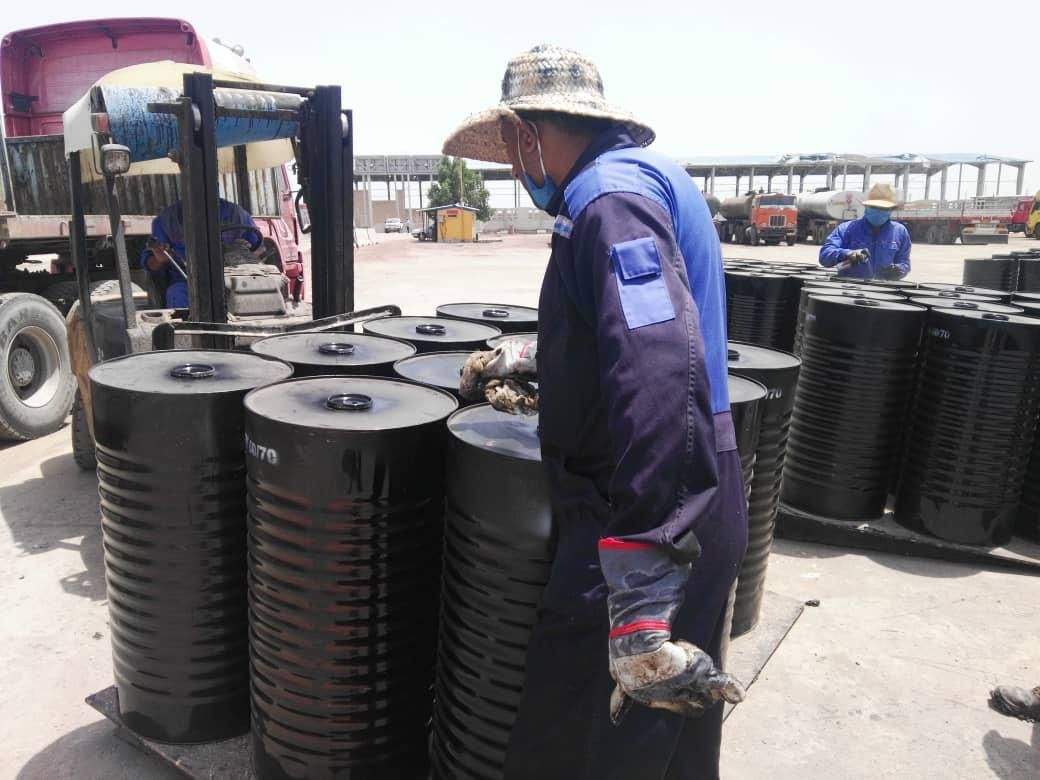At Bitukim, we are a leading supplier of Bitumen 160/220, delivering premium penetration-grade bitumen to infrastructure projects across the globe. Our Bitumen 160/220 meets strict international quality standards, ensuring durability, performance, and reliability in diverse applications — from highways and airports to waterproofing and industrial pavements.
Whether you are in the Middle East, Africa, Europe, South America, or Asia, Bitukim offers competitive pricing, flexible packaging, and on-time delivery to meet your project needs. (Contact Us)
What is Bitumen 160/220?
Bitumen 160/220 is a penetration-grade bitumen known for its specific hardness and consistency. The numbers 160 and 220 indicate the depth (in tenths of a millimeter) that a standard needle penetrates the bitumen under controlled temperature (25°C / 77°F).
This grade offers an excellent balance of stiffness and flexibility, making it ideal for regions with varying climate conditions and heavy traffic loads.
Properties of Bitumen 160/220
-
Penetration Value: 160–220 (1/10 mm) – ensures harder consistency for strength and durability.
-
Viscosity: High, enabling better coating of aggregates during asphalt production.
-
Thermal Stability: Performs well in both high and low temperatures without excessive softening or brittleness.
-
Stiffness & Strength: Resists permanent deformation under heavy loads.
-
Waterproofing: Prevents water penetration into pavement layers.
-
Durability: Maintains performance under extreme weather and traffic conditions.
-
Adhesion: Bonds effectively with aggregates for long-lasting pavement strength.
Applications of Bitumen 160/220
- Road Construction: Creates durable, weather-resistant roads suitable for mixed traffic conditions.
- Highways & Expressways: Withstands heavy traffic and extreme conditions.
- Airport Runways: Handles the stress of repeated take-offs and landings.
- Industrial Pavements: Supports heavy machinery without structural damage.
- Waterproofing: Protects infrastructure from water infiltration.
- Surface Dressing: Binds aggregates for skid-resistant road surfaces.
Packaging & Loading Options
We offer flexible packaging to meet both large-scale and specialized needs:
-
180 kg New Steel Drum – 110 drums per 20 ft container.
-
375 kg Bitubag – 24 MT per 20 ft container.
-
Bulk in Vessel – 2,000 to 20,000 MT.
-
Bulk in Flexi Bag – 20 MT per flexi bag.
-
Bulk in Tanker – 25 MT per truck tanker.
Why Choose Bitukim as Your Bitumen Supplier?
-
Quality Assurance: ISO-compliant manufacturing and strict quality checks.
-
Global Reach: Reliable exports to Africa, Asia, Europe, and the Middle East.
-
Flexible Logistics: Sea, road, and bulk delivery options.
-
Competitive Pricing: High quality at the best market rates.
-
Technical Expertise: Professional support from order to delivery.
Safety Guidelines
-
Ventilation: Ensure proper ventilation during heating to avoid fume inhalation.
-
Protective Gear: Wear heat-resistant gloves, long clothing, and safety goggles.
-
Fire Safety: Keep away from flames and ensure firefighting equipment is nearby.
Frequently Asked Questions (FAQ)
Q1: Can you supply Bitumen 160/220 in bulk for large projects?
Yes, we offer bulk vessel, tanker, and containerized delivery worldwide.
Q2: What standards does your Bitumen 160/220 meet?
Our product meets international specifications such as ASTM and EN standards.
Q3: How fast can you deliver?
Depending on destination and order size, we can arrange shipments within days of confirmation.
Q4: Do you provide custom packaging?
Yes, we can supply in drums, bitubags, flexi bags, and bulk tankers.
Contact Bitukim – Your Trusted Supplier of Bitumen 160/220
📍 Address: Dubai Office – No. 2305, Burlington Tower, Business Bay, DUBAI-UAE
📞 Phone: +(971) 4 566 4998
📱 Mobile: +971 (50) 940 9246
📧 Email: info@bitukim.com
Partner with Bitukim for premium Bitumen 160/220 — quality, reliability, and timely delivery for your infrastructure projects worldwide.


